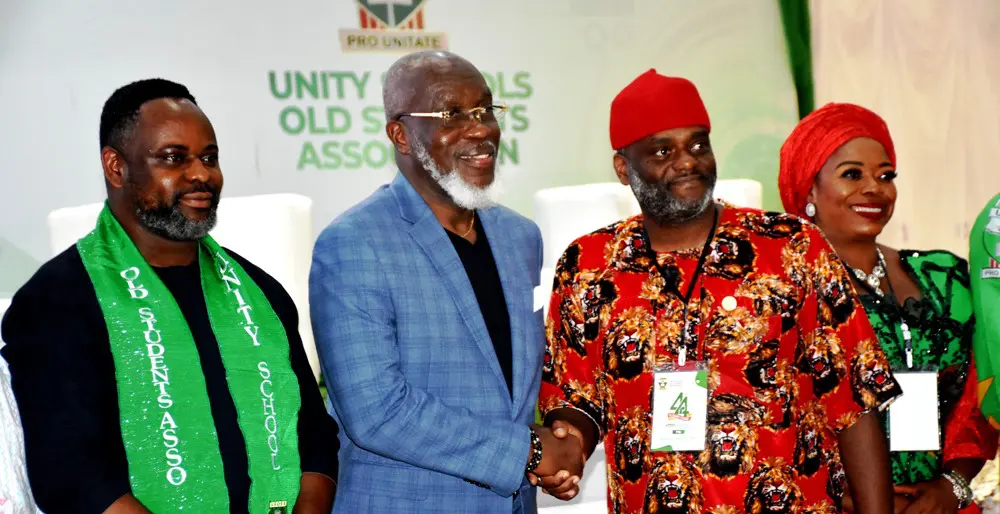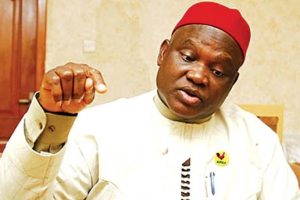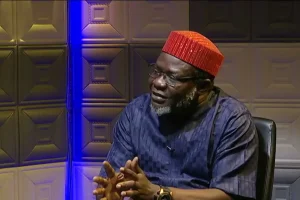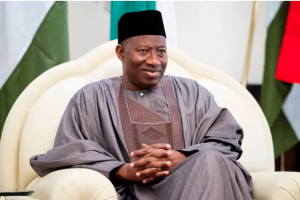
Michael Magaji, President General of the Unity Schools Old Students Association (USOSA), has expressed concern over the current condition of public education in Nigeria.
Magaji made the remarks during the 44th USOSA Plenary Session, held over the weekend in Enugu.
He noted that the majority of public schools lack essential infrastructure necessary for effective teaching and learning.
“Let’s be frank—the current state of public education in Nigeria is far from ideal. According to UNESCO, more than 20 million Nigerian children are out of school,” he said.
“That’s not just a number—it represents a generation in jeopardy. Countless schools still lack basic necessities like electricity, internet access, desks, and qualified teachers.
”However, the USOSA President praised the Enugu State Government for its forward-thinking approach in embracing smart and digital education, calling it a bold and commendable step toward transforming the country’s public education system.
He noted that the smart schools serve as exemplary models that other sub-national governments across the country should emulate.
Addressing an audience of alumni, government representatives, education stakeholders, and tech innovators, Magaji commended Governor Peter Mbah for what he described as “elevating the standard of educational service delivery.”
“Just eleven months ago, USOSA hosted an Education Summit focused on digital learning and transforming education for the 21st-century child. I’m pleased to see that we’ve progressed from planning to implementation,” he said.
He encouraged state governments to modernize their education delivery systems to meet the evolving demands of the digital era.
“Smart schools are now fostering and enhancing students’ critical thinking, creativity, and digital competencies,” he said.
“This innovative approach shifts away from traditional one-way teaching methods toward a more interactive and participatory model, where students are not just passive learners but active contributors in shaping better educational outcomes.”
He pointed to access as the primary challenge, emphasizing that with strong political will, adequate investment, and unified efforts, the nation’s potential could be transformed into tangible progress.
He affirmed USOSA’s commitment to contributing to national growth and development, adding that the association would persist in advocating for smart, impactful education policies at both the federal and state levels.
We will persist in advocating not just for increased budgetary allocation to the education sector, but more critically, for active involvement in monitoring how those funds are governed and utilized.
“We remain committed to partnering with both government and the private sector to support teacher training and the provision of digital infrastructure,” he stated.
He added, “And yes, as alumni, we must return to our schools—not just to give back, but to give forward. Let’s keep adopting schools, mentoring students, and funding innovation labs in our alma maters.
”Meanwhile, the Secretary to the Enugu State Government, Prof. Chidiebere Onyia, who represented Governor Peter Mbah, highlighted the vision driving the state’s smart school initiative.
He pointed out that while many initially dismissed Governor Mbah’s ambitious goals—such as growing the state’s GDP from $4.4 billion to $30 billion—as mere theory, those plans are now beginning to materialize.
“Some believed his proposals were just academic rhetoric, but we’re already witnessing tangible results.
“The governor views education not as an isolated challenge, but as a key component of a broader ecosystem aimed at driving economic transformation,” he said.
“What we’re implementing goes far beyond the usual 4–8-year political cycle,” Onyia stated. “These smart, eco-friendly schools are designed to cultivate a learning culture that drives long-term economic growth, tackles unemployment, and enhances security.”





